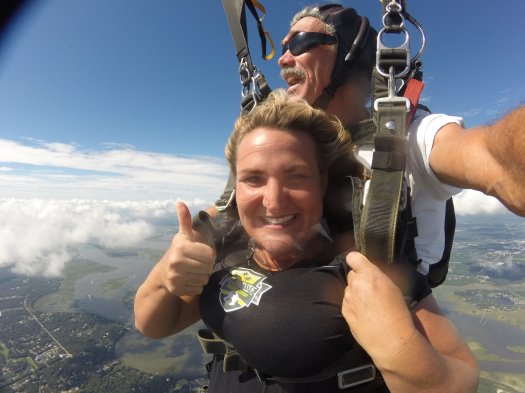|
Many people get nervous before a speech, a date, or being called on to answer a question in the big company meeting. That is not uncommon. However, for people who suffer from social anxiety disorder (SAD), situations like these, and others are unbearable. The Anxiety and Depression Association of America (ADAA) states on its website that social anxiety disorder affects 6.8% of people in the United States. That means that social anxiety disorder impacts 15 million adults in the U.S. The unfortunate part is that an ADAA survey found that 36% of people who suffer from social anxiety disorder wait ten years or more before seeking help in finding relief. In this blog, we'll look at what social anxiety disorder is, its symptoms, the causes, and treatment for social anxiety disorder. Social anxiety symptomsThe symptoms of social anxiety disorder can vary for each person who suffers from the disorder. But they can often include the following:
Social Anxiety causesThe causes of social anxiety disorder are complex and interlaced with both biological and environmental factors. In other words, a child who is genetically predisposed to the disorder may progressively get worse because of social factors such as being harassed at school. WebMD reports no one thing causes social anxiety disorder. Evidence shows that genetics could be a factor, or having an overactive amygdala can also be a reason. This is the part of the brain that controls a person's fear response. Social anxiety disorder usually surfaces as a young teenager, and it often can be linked to previous abuse and bullying. Other risk factors include growing up being more on the shy side and having certain health conditions. How Social Anxiety Disorder Affects PeopleUnfortunately, people who experience social anxiety can suffer many disheartening side effects. As reported by the Mayo Clinic, these side effects can include low self-esteem, issues with taking charge (being assertive), being overly-critical of one’s self, being hypersensitive, poor social skills, and substance abuse, to name a few. Additionally, the National Center for Biotechnology Information (NCBI) reports that people who suffer from social anxiety disorder are twice as likely to be unemployed. And, with dating and relationships, many people who suffer from SAD encounter many issues. People with social anxiety disorder have a harder time establishing new relationships with people because they avoid people. This can often lead to loneliness, having fewer friendships, and lessening the chances of having a meaningful and intimate relationship with another person. Treatment for Social AnxietyTreatment for social anxiety will often depend on the severity of a patient who is diagnosed with the disorder. Common types of treatment are psychotherapy (mental health counseling), medications, or both. Psychotherapy can be very effective in working to combat the symptoms of social anxiety disorder. In working with a counselor, a patient learns to recognize and change their thought patterns. There are several types of medications available to treat social anxiety successfully. Doctors will often use antidepressants, anti-anxiety medications, and beta-blockers to help treat SAD. "Learning to overcome social anxiety involves moving outside comfort zones while allowing uncomfortable feelings to stay present. Rather than getting rid of anxiety, you learn to live life fully with it," says Megan Logan, MSW, LCSW. recapIn this blog, we discussed what social anxiety disorder (SAD) is. We looked at symptoms, causes, and how it can affect people's lives. But, also, we looked at how people can overcome social anxiety disorder with the help of treatment that includes mental health counseling and medication.
If social anxiety impacts your daily life, work, or relationships, there is help. Getting started on a treatment plan can get you feeling better soon. And, if you are worried about privacy issues with seeking treatment, consider a telemedicine appointment. A telemedicine counseling session will allow you to get the treatment you need from the comfort of your home—without ever having to leave the house. If you are ready to start feeling better and seeing life differently, please drop me a line, I would love to help you.
13 Comments
In this blog, we'll take a look at several telemedicine benefits for mental health. Because let's face it, going to see medical professionals can be a problem for numerous people because of various reasons. After reading this blog, you'll see how telemedicine can be a total gamechanger as a patient. It's something that can help many who otherwise would not seek treatment and others who wouldn't be able to get treatment because of their circumstances. Let's dive right in. Telemedicine DefinitionWhat is telemedicine exactly? Does telemedicine mean people just call their counselors and medical professionals and have a chat by phone? The Merriam-Webster dictionary defines telemedicine as "the practice of medicine when the doctor and patient are widely separated using two-way voice and visual communication (as by satellite or computer)." As telemedicine relates to mental health counseling, it's also called telepsychiatry, a subset of telemedicine. With telepsychiatry, patients and counselors can communicate through live interactive sessions. From home, connecting with your mental health counselor at their office via a HIPAA compliant platform like Clocktree would be an excellent example of telemedicine. With telemedicine, counselors can meet individually with a single patient, conduct sessions for group therapy, and meet with children, and others. Telemedicine BenefitsNow, let's take a look at several of the benefits of telemedicine and how it's helping patients get access to their mental healthcare services. 1. It Saves TimeTelemedicine saves time. Many patients have to leave work early and travel miles for their counseling sessions. However, with something like telemedicine, time can instantly be saved. People can conduct a counseling session right from their location, cutting out the problem of travel time. 2. It Saves MoneyFor many, when it comes to getting to a counseling session or doctor's appointment, they might have to travel. This can mean having to pay for the cost of fuel. However, other than the costs of fuel, many people might also have to pay for childcare. And having to pay for gasoline and childcare regularly can quickly add up. With telemedicine, these issues can be taken care of with ease. 3. Telemedicine Allows Patients to Connect in Times When They Normally Couldn'tAnother considerable benefit of telemedicine is that it allows patients to connect with therapists during times when they usually couldn't. For example, maybe a patient has a crisis while out of town and needs to connect with their counselor. With emergent situations like this, many people can efficiently connect with their counselors through a telemedicine session. Other times counseling by telemedicine might make sense is when a patient is physically ill, out of town for work, or unable to travel because of something like the COVID-19 quarantine. 4. Telemedicine and PrivacyWith telemedicine, patients can be at ease about the privacy of their counseling sessions and mental health treatment. Because of telemedicine, many patients who otherwise wouldn't seek out counseling out of fear of being stigmatized can now get the help they need right from home. This is a huge deal for many patients. RecapTelemedicine is transforming the way that patients and healthcare professionals interact. It's making care more accessible for patients. And when it comes to mental health, it can be a gamechanger.
As this blog has shown, counseling through telemedicine (telepsychiatry) can save time and save money for many patients. Additionally, telemedicine provides a way for patients to connect with their counselors when they otherwise couldn't. And finally, interactive counseling through telemedicine ensures patient privacy. In other words, patients don't have to worry about the judgment of others as it relates to their counseling sessions. If you are looking to book a telemedicine therapy session with Megan Logan, MSW, LCSW, book a counseling appointment today or contact us with questions. We'd love to connect with you and get you started with a counseling plan that fits you and your schedule. BUMMER.
Lately, I have seen this word used on social media or have heard others respond this way. Honestly, it makes me cringe. Bummer. An invalidating word when used alone. "My car broke down and I had to walk a mile in high heels to get gas". Bummer. "My kids are struggling to make friends in school". Bummer. "I lost my big soccer game." Bummer. When someone wants to vent, share challenges and frustrations or just know someone is listen, they want to hear something more than a one-word response. In my opinion, "Bummer" just simply falls short. Rarely, if ever, does a one-word response evoke feelings of validation. Perhaps the intent is sincere, yet it just comes off as a half-hearted attempt at empathy. It sounds a bit more like a try for sympathy, an appearance of compassion or feeling sorry for someone while not really having to invest much emotional energy or get involved. To validate another’s feelings and respond with empathy, a person must reach down into the depths of his or her own emotional center to relate with those uncomfortable feelings. It takes energy, vulnerability and effort. A simple “Bummer” just won’t do. I suppose “Bummer” feels better than an attempt to fix things by “looking on the bright side” which can also feel invalidating. I like to think of them as distant cousins. If I get a “Bummer” response, I typically don’t share any more. Not because I’m angry or cold, but it is my cue that perhaps the person is not able to engage emotionally or does not have the time or energy to invest at that moment. If someone absolutely must say “Bummer”, please at least follow-up with an empathic response. “My car broke down and I had to walk a mile in my high heels to get gas.” Bummer, that must have been miserable. I bet you got blisters. How did it turn out? “My kids are struggling to make friends in school.” Bummer, it’s hard to make friends and kids can be mean. How are they handling it? “I lost my big soccer game.” Bummer, losing never feels good. What happened in the game? I still think there is no need to say “Bummer” at all, but that’s just me. It seems trendy now and I have a feeling it’s around to stay. I just would love to hear more empathy and compassion behind the word, if that is what a person wants to convey. If you want to shut down, invalidate or send the message that you feel sorry for someone and don’t want to get too involved, then “Bummer.” is the way to go! Five things I learned while belly to the earth.
3. Everything down below looks so small and insignificant. The worries, fears and daily stresses don’t seem that big or important from 10,000 feet above. A wonderful reminder to keep perspective and look at the big picture. 4. Life is good until you get motion sickness and blow chunks onto your instructor’s face. Oops. And I even took Dramamine! Well, we did just share a life or death moment together. Seems only fitting that I spill my guts too since without vulnerability, there is no intimacy. 5. In a span of 5 minutes, I experienced one of my most coolest life changing moments. Another reminder to slow down, stop, breathe and be in the moment. Life happens in a blur, as we rush around hustling to reach the next goal. Sky diving put it all in perspective!
|
Archives
April 2020
Categories |












 RSS Feed
RSS Feed